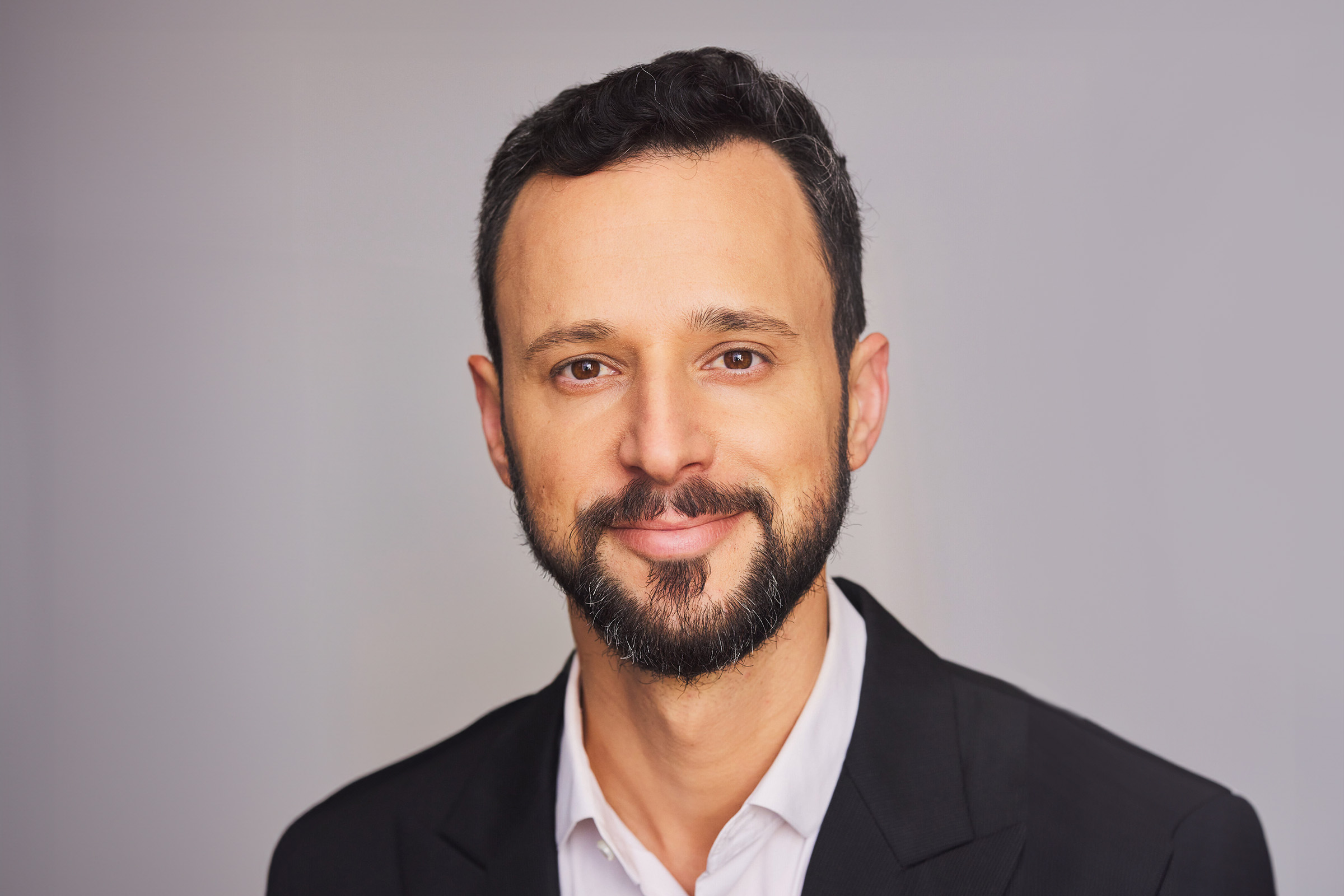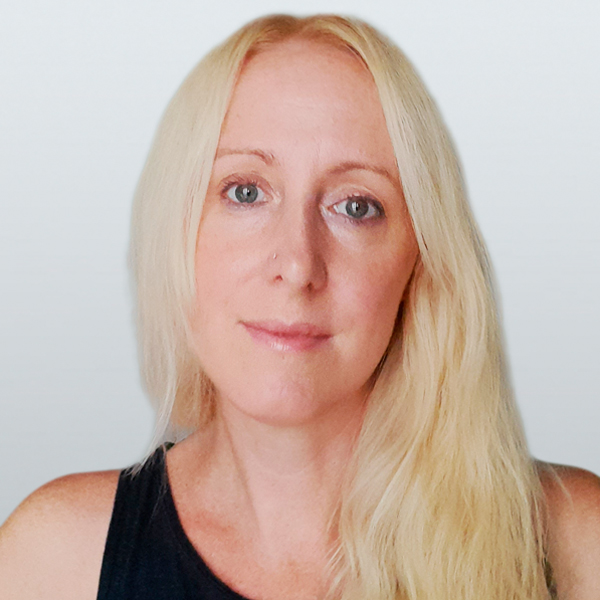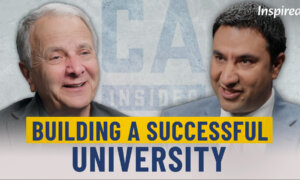A clinic in Los Angeles is giving power back to parents.
Integrative Pediatrics and Medicine, founded by integrative pediatrician and parent Dr. Joel “Gator” Warsh in 2018, is charting a new course in pediatric care. Warsh encourages open communication, offers alternative and natural treatments, values prevention, and teaches parents to trust their intuition.
In an era in which parental stress is at an all-time high, Warsh supports parents by addressing their concerns, helping them navigate information overload, and reminding them that they know more than they realize. His approach to health and well-being, which aims to empower parents, appears to be resonating. Business is booming.
Doctor as Ally
Many parents feel disempowered in the current health care system. When new parents join Warsh’s practice, they often tell him that other doctors have not adequately listened to their concerns about their children’s health.
Warsh said that many people are unhappy with the Western medical system.
“A lot of people are starting to wake up a little bit to the fact that they have to take health into their own hands,” he told The Epoch Times.
Warsh said that parents want to have an open discussion. But unfortunately, many physicians who practice modern medicine are unwilling to do that, particularly with topics like vaccines. Warsh encourages open discussions, even about controversial topics. This is part of the reason his practice has flourished.
Warsh’s focus on prevention and lifestyle doesn’t align with the typical medical model of brief doctor appointments. He dedicates time to comprehensive patient histories, and discusses diet, sleep, exercise, and environmental factors. “You can only do so much in two or three minutes,” Warsh said. If you’re not focusing on lifestyle, you’re missing a crucial part of health, he added.
Warsh advocates for a partnership between doctors and patients. “I don’t think it’s a doctor’s job to tell people what to do,” he said. “It’s to teach them what to do.” People need to respect diverse opinions and perspectives rather than foster division, he noted.
In his recent book, “Parenting at Your Child’s Pace: The Integrative Pediatrician’s Guide to The First Three Years,” Warsh aims to empower parents with information and confidence. His message is that “parenting is not a one-size-fits-all proposition.”

(Photo courtesy of Dr. Joel Warsh)
Parents Are Stressed
Modern parents face unprecedented challenges, largely due to information overload. Warsh said stress is a major issue, particularly for first-time parents.
“The stress has increased because I feel like people don’t trust themselves as much anymore because there’s just so much access to information,” he said. “It’s really hard to synthesize it, and you always feel like you’re missing something or doing the wrong thing.”
Warsh’s approach to helping stressed parents is to answer questions and discuss concerns, but primarily, it’s to reassure them that what is happening is “OK and normal.” While it’s natural to worry about serious symptoms, true emergencies are rare, he added.
“For most other things, you have time,” he said. “There isn’t one right way to do almost anything in parenting, so a lot of it is really just trying things and using your gut to figure out what the best option is going from there.”
Trusting Parental Intuition
Warsh said he encourages parents to trust their instincts instead of comparing themselves to others or second-guessing their gut feelings.
“You have to go back to remembering that there’s nothing more powerful than our gut instincts,” he said. “And if there’s anything that a smart doctor will use—number one is a mom’s instincts. I think that’s a super, super helpful piece of information to have when you’re thinking about anything that’s health or wellness.”
First-time parents often worry excessively, Warsh noted, because they are navigating unfamiliar territory without self-trust.
“You really can do most things,” he said. “You just have to trust that you can. And most people trust themselves a lot more after they’ve been through it once.”
Warsh said he hopes his book will help parents feel confident raising their children in a way that works best for their family while also finding joy in the process.
Warsh is not the first expert to recognize the power of intuition and its role in health and healing.
In her book “Radical Remission: Surviving Cancer Against All Odds,” Dr. Kelly Turner, a researcher and psychologist, investigated more than 1,000 cases of people who recovered from severe and often terminal cancer diagnoses. They all shared nine factors in common, one of which was an ability to follow their intuition. The book gives several examples of how patients used intuition to guide their healing.
Dr. Judith Orlof is a psychiatrist, intuitive healer, and author who has written several bestselling books that combine psychiatry, intuition, and personal growth. She teaches people to use intuition to heal emotionally, mentally, and physically. She also advocates for using intuition in conventional medicine, encouraging doctors and health care providers to trust their intuition to better understand and treat their patients.
Allopathic to Integrative
Warsh takes a holistic, integrative approach to treating his patients. He told The Epoch Times that he is open to learning from diverse cultures and philosophies.
Warsh said he defines integrative medicine as “balancing the best of Western medicine with alternative and holistic practices.”
This approach emphasizes investigating the root causes of illnesses and focusing on preventive measures such as diet and exercise.
Integrative medicine can include numerous modalities, like yoga, acupuncture, and nutrition. Warsh’s website describes it as the “appropriate use of both conventional and alternative methods,” enabling the body to heal itself while focusing on promoting health and preventing disease.
The SEEDS of Well-Being
Warsh uses the acronym SEEDS to represent the five factors that most significantly affect physical, mental, and emotional health:
- Stress
- Environment and toxins
- Exercise
- Diet
- Sleep
He said the most crucial factors are diet and toxins.
Despite the overwhelming prevalence of toxins in today’s world, small changes can have a powerful impact, Warsh said.
He referenced a Harvard study that compared canned soup and fresh soup.Many food and drink cans are lined with bisphenol A (BPA), an endocrine-disrupting chemical linked to obesity, diabetes, and cardiovascular disease. For the study, Harvard researchers had one group of volunteers eat one serving of canned soup daily for five days while another group ate fresh soup. After five days, those who ate canned soup had more than 1000 times (1,221 percent) more BPA in their urine than those who ate soup made with fresh ingredients.
Warsh encourages simple actions to improve children’s health, such as cooking meals together and eating fresh foods whenever possible.
‘Dr. Gator Smoothie’
Warsh cautioned against self-proclaimed gurus who offer “magic-bullet” solutions, noting that this “one-size-fits-all” mentality often fuels stress for parents.
His “Dr. Gator Smoothie” is meant to poke a bit of fun at those miracle solutions meant to cure everything. But according to his book, it is, in fact, “a carefully crafted recipe designed to compliment a balanced, integrative approach to your family’s health and wellness.” The raw “ingredients” are:
- Emotionally nurturing spaces
- Mental health support
- Mindful stress management and resilience
- Social support
- Regular physical activity
- Adequate sleep
- Balanced nutrition
- Limited toxins
- Access to health care
- Limited tobacco exposure
- Clean air and water
- Strong community ties
- Love and affection
Final Thoughts
While nothing truly prepares you for the anxieties and uncertainties of being a parent, technological advances and improved safety standards have made it safer than ever, Warsh noted.
Warsh emphasized that parents’ daily choices significantly affect their child’s health. He encourages a focus on quality nutrition and toxin reduction, stressing that these small steps build a foundation for lifelong health.
Finally, Warsh said he hopes to empower parents to make the decisions that are right for them and their children while reassuring them that their parental intuition is innate and trustworthy. According ot him, what is needed to be a great parent hasn’t changed. It simply requires being loving and attentive to our children.
The thing he wants parents to remember most is that, ultimately, you got this.










